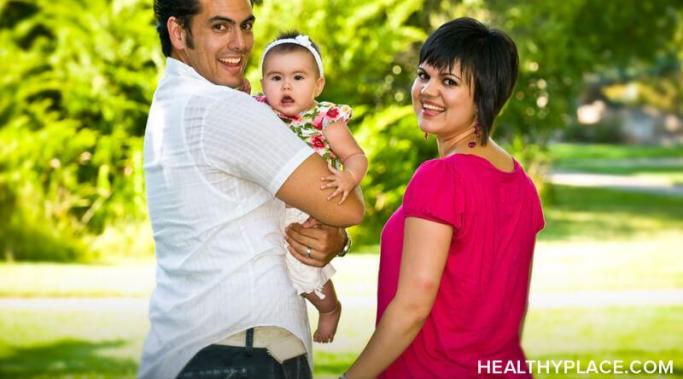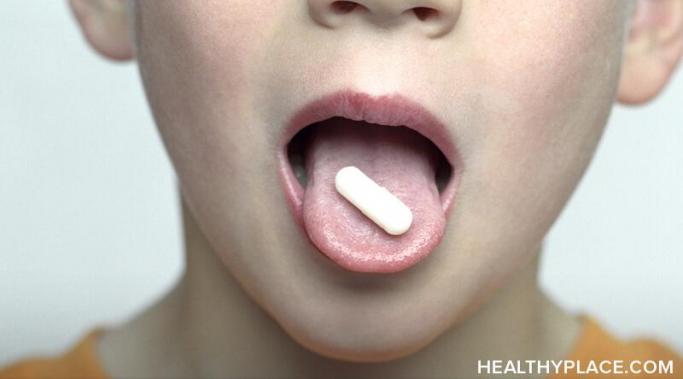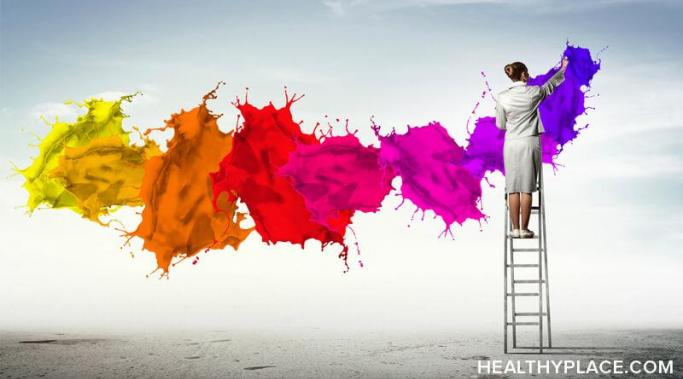Recovering from a mental illness during the holidays can be more difficult than recovering at any other time of year. The holiday season can bring additional financial, personal, and emotional stress as well as a sense of overwhelming anxiety. Seeing family members, having to purchase gifts, and juggling the added responsibilities during the holidays are all not conducive to recovering from mental illness. But recovering from mental illness over the holidays is possible with a plan and awareness of what the holidays may bring up for you.
Recovering from Mental Illness
Stressful life events play an enormous role in mental health issues; the connection between stress and mental illness is strong. There have been a few stressful events in my life that have really affected my mental illness symptoms. Moving, college, and motherhood have had the biggest impact on me. Some of these events took place before I was diagnosed with schizoaffective disorder and bulimia, and some took place after. Here’s what happened and how I coped with these stressful life events.
Many times our relationship with food affects our mental illness recovery and our mental illness recovery affects our relationship with food. Whether it’s overeating or not eating enough, usually our eating patterns are abnormal. This affects our mood, energy, thoughts, and feelings about ourselves. Lack of normalcy with food can make it extremely difficult to recover from mental illness. Being healthy and confident in our food choices, or having a good relationship with food, is key to recovery.
Being a college student with mental illness can be challenging, but for many, it is well worth it. A few months ago, I wrote an article on the importance of persistence as a college student. Persistence in college helps greatly, but it takes more than that to succeed. There are many resources available to college students with mental illness and it’s also important to build a network of support, including mental health professionals, peers, mentors, family and friends.
A daily journal becomes a powerful tool when it comes to mental illness recovery because it allows you to get out of your head and onto paper. Oftentimes when someone is recovering from mental illness, they spend a lot of time alone or feeling lonely (even if they are around other people), and he or she is usually in his or her head with his or her thoughts. When you are able to write down your thoughts, your feelings, your beliefs, and what you are going through, something magical happens. You find so much clarity and peace in that practice, one of the many mental health benefits of journaling. Keeping a daily journal will aid your mental illness recovery.
In 2016, my life changed forever when I became a mom for the first time, but my mental illness has made my new role as a parent sometimes challenging. I was diagnosed with schizoaffective disorder 10 years before giving birth to our daughter, and I have been doing really well with medication for the last several years. Being a mom with a mental illness comes with additional parenting concerns specific to mental illness.
For the past 10 years, mental illness medications have been an integral part of my recovery from schizoaffective disorder. Finding the right psychiatric medications and dosage was difficult at first. My medications now are very effective, but still occasionally need adjustment. I know the life I live now would never be possible without mental illness medications.
Sharing your struggle with mental illness is personal, so being open and transparent about mental illness can be extremely difficult. So much of the time there is a lot of shame, embarrassment, and guilt surrounding the struggle with mental illness that many who suffer keep it to themselves. But explaining to others what you are going through allows you to no longer have to hide and wear a mask and it gives you a support system that will help you feel as if you are not alone. I believe that sharing your story of struggle with mental illness can be such a powerful step forward and bring you closer to recovering from mental illness.
Creative outlets enhance your recovery from mental illness and can have a remarkable effect on our emotional wellbeing, whether one has a mental illness or not. Art played an integral part early in my recovery from bulimia and schizoaffective disorder, and it remains a very important part of my life today. Art is my medicine, but any creative pursuit can enhance your recovery from mental illness.
How much alone time is healthy for me? I used to ask that question multiple times a day when I was recovering from mental illness. Sometimes I felt like I was spending too much time alone and other times I felt like I wasn’t spending enough time alone. People who aren’t suffering from a mental illness may ask themselves this too, but in the case of mental illness recovery, I feel it is more of a tricky one: Isolation and loneliness harms mental health recovery, but taking no time for yourself isn't good for you either. How much alone time is healthy when in recovery from mental illness? A black-and-white answer doesn’t exist.









